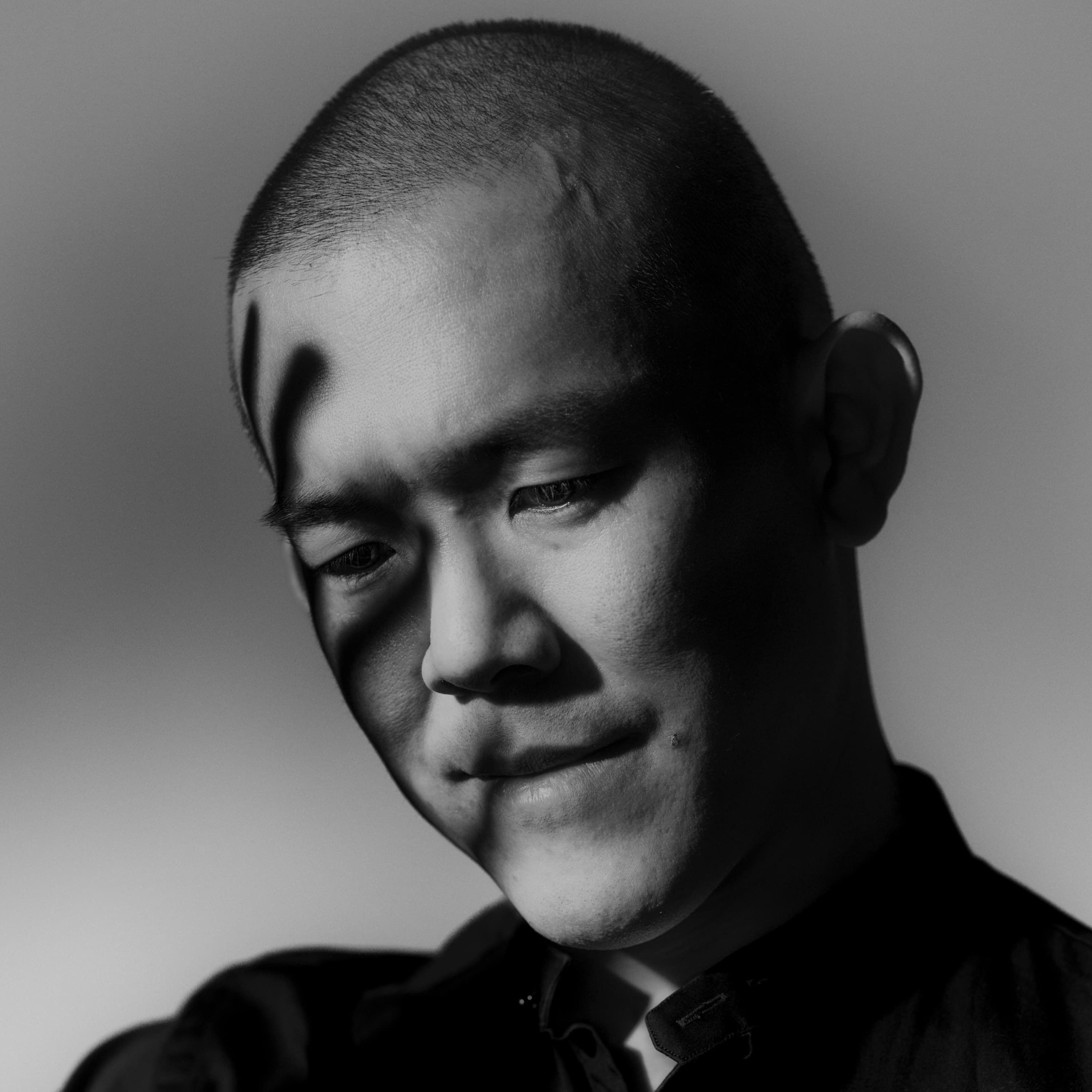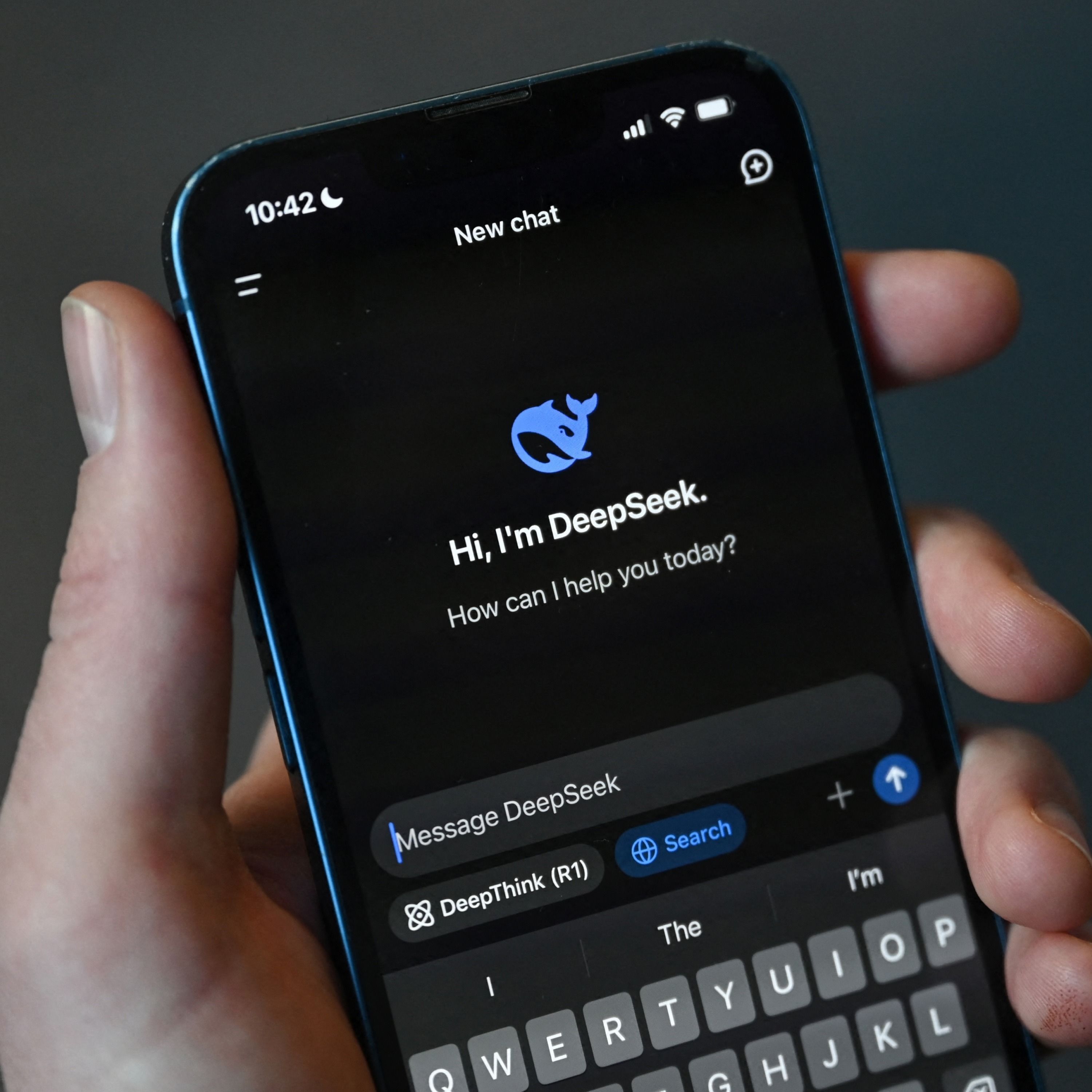Afleveringen
-
When David Muhammad was 15, his mother moved from Oakland, Calif., to Philadelphia with her boyfriend, leaving Muhammad in the care of his brothers, ages 20 and 21, both of whom were involved in the drug scene. Over the next two years, Muhammad was arrested three times — for selling drugs, attempted murder and illegal gun possession.
For Muhammad, life turned around. He wound up graduating from Howard University, running a nonprofit in Oakland called the Mentoring Center and serving in the leadership of the District of Columbia’s Department of Youth Rehabilitation Services. Then he returned to Oakland for a two-year stint as chief probation officer for Alameda County, in the same system that once supervised him.
Muhammad’s unlikely elevation came during a remarkable, if largely overlooked, era in the history of America’s juvenile justice system. Between 2000 and 2020, the number of young people incarcerated in the United States declined by an astonishing 77 percent. Can that progress be sustained — or is America about to reverse course and embark on another juvenile incarceration binge?
Unlock full access to New York Times podcasts and explore everything from politics to pop culture. Subscribe today at nytimes.com/podcasts or on Apple Podcasts and Spotify.
-
The Pulitzer Prize-winning science writer talks about burnout from covering the pandemic and how bird-watching gave him a new sense of hope.Unlock full access to New York Times podcasts and explore everything
from politics to pop culture. Subscribe today at nytimes.com/podcasts or
on Apple Podcasts and Spotify. -
This week, President Trump falsely claimed that Ukraine started the war against Russia, ordered federal agencies created by Congress to answer directly to him and installed himself as the leader of Washington’s premiere cultural institution.
The Times journalists Michael Barbaro, Zolan Kanno-Youngs, Charlie Savage and Elisabeth Bumiller sit down to make sense of it all.
Guest:
Zolan Kanno-Youngs, a White House correspondent for The New York Times,Charlie Savage, who writes about national security and legal policy for The New York Times.Elisabeth Bumiller, a writer-at-large for The New York Times.Background reading:
Trump flipped the script on the war in Ukraine, blaming Volodymyr Zelensky, not Vladimir V. Putin.The president’s moves to upend federal bureaucracy touch off fear and confusion.Trump said he would install himself as the new Kennedy Center chairman.For more information on today’s episode, visit nytimes.com/thedaily. Transcripts of each episode will be made available by the next workday.
Photo: The New York Times
Unlock full access to New York Times podcasts and explore everything from politics to pop culture. Subscribe today at nytimes.com/podcasts or on Apple Podcasts and Spotify.
-
The sweeping federal corruption charges against Mayor Eric Adams seemed to spell the end of his career. Then he got a sudden reprieve from President Trump — but as the terms of that support became public, an extraordinary blowback ensued.
Nicholas Fandos, who covers New York politics and government for The Times, walks us through the saga.
Guest: Nicholas Fandos, a reporter covering New York politics and government for The New York Times.
Background reading:
Here are the charges against Mayor Adams.The mayor may avoid a criminal trial. He still faces political peril.For more information on today’s episode, visit nytimes.com/thedaily. Transcripts of each episode will be made available by the next workday.
Photo: Seth Wenig/Associated Press
Unlock full access to New York Times podcasts and explore everything from politics to pop culture. Subscribe today at nytimes.com/podcasts or on Apple Podcasts and Spotify.
-
On the campaign trail, Donald J. Trump and his allies left little doubt that, if they returned to power, federal workers would face layoffs, buyouts and agency closures.
Now that President Trump’s plan has become a reality, dozens of federal workers explain what it’s been like to live through it.
Background reading:
Here’s where Mr. Trump, Elon Musk and DOGE have cut federal workers so far.Stunned government workers are facing sleeplessness, anger and tears.For more information on today’s episode, visit nytimes.com/thedaily. Transcripts of each episode will be made available by the next workday.
Photo: Mandel Ngan/Agence France-Presse — Getty Images
Unlock full access to New York Times podcasts and explore everything from politics to pop culture. Subscribe today at nytimes.com/podcasts or on Apple Podcasts and Spotify.
-
During less than a month in office, President Trump has pursued more trade actions against adversaries and allies than all the trade measures he took in his entire first four-year term. There is one man guiding it all: his trade adviser Peter Navarro.
Ana Swanson, who covers trade and international economics for The Times, explains why Mr. Navarro thinks tariffs will usher in a new age of American prosperity.
Guest: Ana Swanson, who covers trade and international economics for The New York Times.
Background reading:
Mr. Navarro, a loyalist in Mr. Trump’s first term, was a thorn in the side of Wall Street.Mr. Trump’s tariffs are threatening to upend the global economic order.For more information on today’s episode, visit nytimes.com/thedaily. Transcripts of each episode will be made available by the next workday.
Unlock full access to New York Times podcasts and explore everything from politics to pop culture. Subscribe today at nytimes.com/podcasts or on Apple Podcasts and Spotify.
-
A few days ago, the Trump administration began blowing up America’s existing approach to ending the war in Europe by embracing Russia and snubbing Ukraine.
The shift has quickly turned into a broader assault on America’s relationship with Europe.
Anton Troianovski, the Moscow bureau chief of The Times, explains how it’s all adding up to a stunning victory for Vladimir V. Putin.
Guest: Anton Troianovski, the Moscow bureau chief for The New York Times.
Background reading:
Analysis: Vladimir V. Putin’s call with President Trump reinforced the Russian leader’s view that Moscow and Washington should decide the fate of Ukraine.After being left out of Ukraine talks, Europe is racing to organize a response.For more information on today’s episode, visit nytimes.com/thedaily. Transcripts of each episode will be made available by the next workday.
Photo: Tyler Hicks/The New York Times
Unlock full access to New York Times podcasts and explore everything from politics to pop culture. Subscribe today at nytimes.com/podcasts or on Apple Podcasts and Spotify.
-
The Arizona lawmaker diagnoses what he thinks needs to change in the way his party communicates with men, Latinos and Trump voters.Unlock full access to New York Times podcasts and explore everything
from politics to pop culture. Subscribe today at nytimes.com/podcasts or
on Apple Podcasts and Spotify. -
Over the past week, President Donald J. Trump dramatically ceded the stage to Elon Musk in the Oval Office, turned the Democratic mayor of New York City into a political pawn and ensured that Vladimir Putin begins peace talks with Ukraine on Russia’s terms.
The Times journalists Michael Barbaro, Maggie Haberman, David E. Sanger and Zolan Kanno-Youngs sit down and discuss the latest week in the Trump administration.
Guests:
Maggie Haberman, a White House correspondent for The New York Times.David E. Sanger, the White House and National Security Correspondent for The New York Times.Zolan Kanno-Youngs, a White House correspondent for The New York Times.Background reading:
Mr. Trump and Mr. Musk are hunting hunt for corruption, but very selectively.Mr. Trump says his call with Mr. Putin is the beginningis beginning of the Ukraine peace negotiations.How the Jjustice Ddepartmentt. helped sink its own case against Eric Adams.For more information on today’s episode, visit nytimes.com/thedaily. Transcripts of each episode will be made available by the next workday.
Photo: The New York Times.
Unlock full access to New York Times podcasts and explore everything from politics to pop culture. Subscribe today at nytimes.com/podcasts or on Apple Podcasts and Spotify.
-
An outbreak of bird flu has been tearing through the nation’s dairy farms and infecting more and more people.
Now there are troubling signs that the United States may be closer to another pandemic, even as President Trump dismantles the country’s public health system.
Apoorva Mandavilli, who covers science and global health for The Times, explains how the virus has changed and why our government might be ill-equipped to respond.
Guest: Apoorva Mandavilli, a science and global health reporter at The New York Times.
Background reading:
Could the bird flu become airborne?Egg prices are high. They’re likely to go higher.For more information on today’s episode, visit nytimes.com/thedaily. Transcripts of each episode will be made available by the next workday.
Photo: Joe Raedle/Getty Images
Unlock full access to New York Times podcasts and explore everything from politics to pop culture. Subscribe today at nytimes.com/podcasts or on Apple Podcasts and Spotify.
-
As President Trump issues executive orders that encroach on the powers of Congress — and in some cases fly in the face of established law — a debate has begun about whether he’s merely testing the boundaries of his power or triggering a full-blown constitutional crisis.
Adam Liptak, who covers the Supreme Court for The Times, walks us through the debate.
Guests: Adam Liptak, who covers the Supreme Court and writes Sidebar, a column on legal developments, for The New York Times.
Background reading:
President Trump’s actions have created a constitutional crisis, scholars say.Sidebar: Is Trump’s plan to end birthright citizenship “Dred Scott II”?For more information on today’s episode, visit nytimes.com/thedaily. Transcripts of each episode will be made available by the next workday.
Photo: National Archives, via Associated Press
Unlock full access to New York Times podcasts and explore everything from politics to pop culture. Subscribe today at nytimes.com/podcasts or on Apple Podcasts and Spotify.
-
Warning: This episode contains strong language.
As President Trump demolishes the government’s biggest provider of foreign aid, the United States Agency for International Development, he is ending a 60-year bipartisan consensus about the best way to keep America safe from its enemies.Michael Crowley, who covers U.S. foreign policy, and Stephanie Nolen, a global health reporter for The New York Times, discuss the rise and fall of U.S.A.I.D. — and American soft power.
Guests: Michael Crowley, a reporter covering the State Department and U.S. foreign policy for The New York Times; and Stephanie Nolen, a global health reporter for The New York Times.
Background reading:
With his aid cutoff, President Trump has halted U.S.A.I.D.’s legacy of “acting with humanity.”The agency’s workers are braced for the worst.For more information on today’s episode, visit nytimes.com/thedaily. Transcripts of each episode will be made available by the next workday.
Photo: Safin Hamid/Agence France-Presse — Getty Images
Unlock full access to New York Times podcasts and explore everything from politics to pop culture. Subscribe today at nytimes.com/podcasts or on Apple Podcasts and Spotify.
-
Over the past week, President Trump avoided a trade war with Canada and Mexico. But he escalated a trade war with China.
His reasoning? China has become more powerful in domestic manufacturing than the United States, Japan, Germany, South Korea and Britain combined.
Keith Bradsher, the Beijing bureau chief for The New York Times, explains why China’s dominance as a trading partner has become a threat to Trump’s agenda — and asks whether America will ever be able to catch up.
Guests: Keith Bradsher, the Beijing bureau chief for The New York Times.
Background reading:
For China, President Trump’s moves bring pain, but also potential gains.China’s trade surplus has reached a record level: nearly $1 trillion.For more information on today’s episode, visit nytimes.com/thedaily. Transcripts of each episode will be made available by the next workday.
Photo: Agence France-Presse — Getty Images
Unlock full access to New York Times podcasts and explore everything from politics to pop culture. Subscribe today at nytimes.com/podcasts or on Apple Podcasts and Spotify.
-
Thousands of years ago, after domesticating cows and other ruminants, humans did something remarkable: They began to consume the milk from these animals.
But living closely with animals and drinking their milk also presents risks, chief among them the increased likelihood that infections will jump from animals to people. Some of humanity’s nastiest scourges, including smallpox and measles, probably originated in domesticated animals. In the 19th century, health authorities began pushing for milk to be treated by heating it; this simple practice of pasteurizing milk would come to be considered one of the great public-health triumphs of the modern era.
Today, however, a small but growing number of Americans prefer to drink their milk raw. And Robert F. Kennedy Jr., President Trump’s choice to lead the Department of Health and Human Services, now stands at the vanguard of this movement.
Unlock full access to New York Times podcasts and explore everything from politics to pop culture. Subscribe today at nytimes.com/podcasts or on Apple Podcasts and Spotify.
-
The legendary actor discusses the prophecy that changed his life, his Oscar snub and his upcoming role starring alongside a “complicated” Jake Gyllenhaal in “Othello” on Broadway.Unlock full access to New York Times podcasts and explore everything
from politics to pop culture. Subscribe today at nytimes.com/podcasts or
on Apple Podcasts and Spotify. -
A battle between two major artists has been dominating the world of music. It’s a fight over one song — a song that may get its biggest stage ever at this weekend’s Super Bowl.
Joe Coscarelli, a culture reporter for The New York Times, explains the feud between Kendrick Lamar and Drake, how Lamar’s “Not Like Us” ripped the music world apart, and why so many fell in love with a song about hate.
Guest: Joe Coscarelli, a culture reporter for The New York Times, who focuses on popular music and co-hosts the podcast “Popcast (Deluxe).”
Background reading:
“Not Like Us” reinvented Kendrick Lamar. Is the Super Bowl ready for it?Listen to “Popcast (Deluxe)” breaking down the feud.For more information on today’s episode, visit nytimes.com/thedaily. Transcripts of each episode will be made available by the next workday.
Photo: Monica Schipper/Getty Images for The Recording Academy; zz, via GOTPAP, via STAR MAX, via IPx, via Associated Press
Unlock full access to New York Times podcasts and explore everything from politics to pop culture. Subscribe today at nytimes.com/podcasts or on Apple Podcasts and Spotify.
-
How is the Democratic Party navigating the dominance of President Trump — and reckoning with the reality that more and more voters have been souring on its message?
The Times journalists Michael Barbaro, Shane Goldmacher, Reid J. Epstein and Annie Karni discuss the state of the Democrats.
Guests: Shane Goldmacher, a national political correspondent for The New York Times; Reid J. Epstein, a New York Times reporter covering politics; Annie Karni, a congressional correspondent at The New York Times.
Background reading:
“We have no coherent message”: Democrats have struggled to oppose President Trump.Democrats chose a political operator from Minnesota as their new leader.The House Democratic Super PAC created a $50 million fund targeting the working class.For more information on today’s episode, visit nytimes.com/thedaily. Transcripts of each episode will be made available by the next workday.
Unlock full access to New York Times podcasts and explore everything from politics to pop culture. Subscribe today at nytimes.com/podcasts or on Apple Podcasts and Spotify.
-
Elon Musk and his team have taken a hacksaw to the federal bureaucracy one agency at a time, and the question has become whether he’s on a crusade that will leave the government paralyzed or deliver a shake-up it has needed for years.
Jonathan Swan, a White House reporter for The New York Times, takes us inside this hostile takeover of Washington.
Guests: Jonathan Swan, a White House reporter for The New York Times.
Background reading:
Inside Mr. Musk’s aggressive incursion into the federal government.For more information on today’s episode, visit nytimes.com/thedaily. Transcripts of each episode will be made available by the next workday.
Photo: Mike Segar/Reuters
Unlock full access to New York Times podcasts and explore everything from politics to pop culture. Subscribe today at nytimes.com/podcasts or on Apple Podcasts and Spotify.
-
North America came within hours of a multibillion dollar trade war that was poised to hobble the economies of Mexico and Canada.
The Times journalists Ana Swanson, Matina Stevis-Gridneff and Simon Romero discuss the last-minute negotiations that headed off the crisis — for now.
Guests: Ana Swanson, who covers trade and international economics for The New York Times; Matina Stevis-Gridneff, the Canada bureau chief for The New York Times; and Simon Romero, an international correspondent for The New York Times based in Mexico City.
Background reading:
President Trump agreed to delay tariffs on Mexico and Canada for a month after both countries pledged to do more to block drugs and migrants.What does Mr. Trump really want from Canada and Mexico?For more information on today’s episode, visit nytimes.com/thedaily. Transcripts of each episode will be made available by the next workday.
Photo: Jeff Kowalsky/Agence France-Presse — Getty Images
Unlock full access to New York Times podcasts and explore everything from politics to pop culture. Subscribe today at nytimes.com/podcasts or on Apple Podcasts and Spotify.
-
Financial markets went into a panic last week over an obscure Chinese tech start-up called DeepSeek. The company now threatens to upend the world of artificial intelligence and the race for who will dominate it.
Kevin Roose, a tech columnist at The Times, discusses how DeepSeek caught us all off guard.
Guests: Kevin Roose, a technology columnist for The New York Times and co-host of the Times tech podcast, “Hard Fork.”
Background reading:
DeepSeek’s model has rocked Silicon Valley and upended several fundamental assumptions about A.I. progress.Listen to “Hard Fork”: Your guide to the DeepSeek freakout.For more information on today’s episode, visit nytimes.com/thedaily. Transcripts of each episode will be made available by the next workday.
Photo: Greg Baker/Agence France-Presse
Unlock full access to New York Times podcasts and explore everything from politics to pop culture. Subscribe today at nytimes.com/podcasts or on Apple Podcasts and Spotify.
- Laat meer zien


















